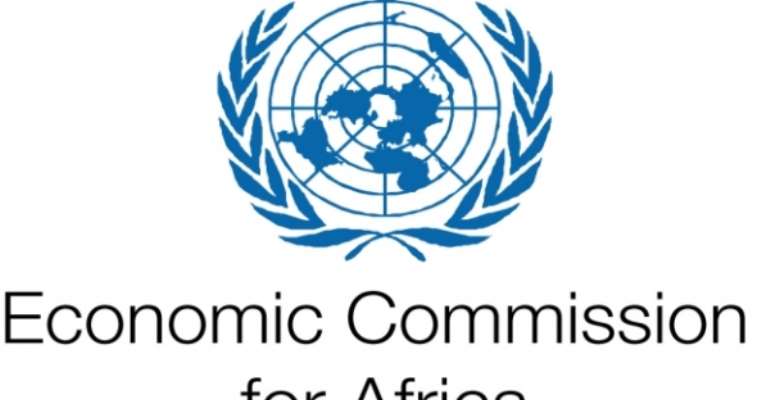ECA spearheads East, Southern Africa consultation on post-2015 development agenda

MOMBASSA, Kenya, October 2, 2012/African Press Organization (APO)/ -- The United Nations Economic Commission for Africa (UNECA), today called on African governments and other stakeholders in the Continent's development to participate fully in the current debate on the post-2015 development agenda. Speaking in Mombassa, Kenya at the opening of sub-regional consultations on the Post-2015 Development Agenda, the Director of ECA's sub regional office for Southern Africa, welcomed the consultation as an opportunity for Africa to have their say in what the development priorities of the continent should be beyond 2015.
In a prepared address by Prof. Emmanuel Nnadozie, Director of the Economic Development and NEPAD Division at ECA, Ms Beatrice Kiraso said that Africa has a second chance and an opportunity to be at the forefront of the debate about the next development agenda.
She recalled that the consultation process is “an opportunity to shape the agenda instead of being shaped by it” in a clear reference to the Millennium Development Goals, which were almost entirely conceived abroad and sold to Africa. However, she cautioned that shaping the agenda would not be an easy task, as there are several actors in the development landscape with varied interests and agendas, who also seek to shape the international development agenda. “We must therefore be strategic in articulating our priorities and also vigilant in identifying entry points to give voice to our development agendas”, she said.
She suggested that the high-level panel on the post-2015 agenda established by the Secretary General provides a useful entry point for stakeholders to channel their views and concerns into the process. The High-level Panel is part of Secretary-General Ban's post-2015 initiative, mandated by the 2010 MDG Summit; at which UN Member States took stock of the progress made in achieving the MDGs.
“Member States have called for open, inclusive consultations – involving civil society, the private sector, academia and research institutions from all regions, in addition to the UN system – to advance the development agenda beyond 2015”, she recalled. She said that President Johnson Sirleaf of Liberia who is a co-Chair of the High-Level Panel represents a strong voice that advocates for Africa's development priorities and called on stakeholders in Africa to make every effort to identify the continent's priorities through a credible consultation process.
Ms Kiraso also urged African experts to ensure that the key messages resulting from the current process are effectively communicated at the global level including through the high level panel members most sympathetic to Africa's cause. “Influencing the wider debate will require strategic alliances both within and across regions. We must identify like-minded partners that can leverage our messages in ways that resonate and capture the imagination of our global audience”, she advised.
Undoubtedly such partnerships will require trade-offs and intense negotiations. Hence, we must prioritize our needs, speak with a common voice and agreement on the issues we believe to be negotiable and those that are not. It is precisely for this reason that we must commit to a common set of priorities informed by our common experiences and lessons learnt from the MDGs to date.
It is in this context that the consultative workshop was organized. It was to take stock of Africa's experience so far with the MDGs, commit to sustaining and accelerating progress on the Goals while at the same time strategizing to ensure that the continent plays a significant role in defining the contours of the next development agenda.
ECA is in this regard one of Africa's key partners and remains committed to nurturing consultations on the post 2015 agenda and forging an African Common Position on Rio +20. In November last year ECA and its partners organized a regional consultation on the post 2015 agenda in Accra, Ghana. The outcome statement that came from the meeting is serving as background material for the Mombassa workshop. It would be recalled that the Accra event was preceded by a continent-wide survey on the same topic. The findings of the consultations are captured in the recently published Assessing Africa's Progress Toward the MDG report.
By organizing additional sub-regional consultations we hope to validate the findings so far and ultimately produce a document that will credibly articulate and constitute Africa's Common position on the post 2015 development Agenda, Dr. Bartholomew Armah, Chief of the MDGs Section in ECA also told the opening session of the consultation. The 2015 deadline for the current Millennium Development Goals has led to a flurry of activities on what the post 2015-development agenda should look like. The purpose of this exercise is to identify, through dialogue with stakeholders, the key priorities of the sub-region for the post 2015-development agenda.
Underlying all these is the question of which option is likely to have the greatest impact on poverty eradication in Africa. Another session for Central, West and Northern Africa is billed for Ouagadougou, Burkina Faso later this year. This will culminate in a continent-wide meeting to articulate an African Common Position on the post 2015 agenda that will be presented to the Conference of Ministers of Economic Development, Finance and Planning in March 2013 and the AU Heads of State Summit, July 2013 for possible endorsement.
